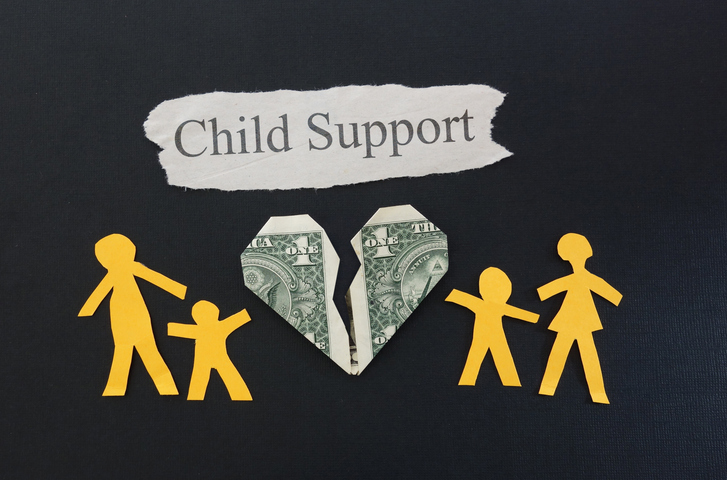In a California no child support agreement, parents sometimes believe that mutual understanding can override legal standards. However, assumptions around these agreements often lead to costly mistakes. Whether you’re in the middle of a divorce or attempting to work out financial terms privately, it’s essential to understand what’s legally enforceable in California family law and what isn’t.
While some parents assume they can simply agree to waive child support, California courts prioritize the child’s best interest—not the convenience of the parents. This misunderstandig, along with others, creates legal vulnerabilities that can unravel agreements and create future litigation.
In this article, we’ll break down the common misconceptions about a California no child support agreement, how they can be challenged, and what the law actually permits.
Understanding the Basics of a California No Child Support Agreement
A California no child support agreement generally refers to an arrangement between two parents where neither party seeks financial support from the other after separation or divorce. While it might seem straightforward and cooperative, California family courts are not obligated to uphold these arrangements.
Child support in California is governed by California Family Code Section 4053, which makes it clear that support is a child’s right—not the parents’. Parents cannot waive this right arbitrarily. Courts will only approve a no-support agreement if it appears the child’s welfare is fully protected.
Myth #1: Parents Can Always Waive Child Support If They Agree
One of the most widespread misconceptions surrounding a California no child support agreement is that two consenting parents can simply opt out of financial obligations. While mutual consent may help streamline many divorce elements, the court will evaluate whether the agreement serves the best interest of the child.
The court applies a statutory formula to calculate support obligations based on each parent’s income, time spent with the child, and other relevant factors. If a proposed agreement deviates significantly from this standard, judges will scrutinize the terms and may reject the agreement altogether.
Myth #2: Private Agreements Are Always Binding
Parents often believe that written private agreements—whether informal or notarized—carry legal weight. However, even if parents jointly draft a California no child support agreement, the court must formally approve it. If it’s not included in a final judgment or family court order, it holds little legal weight.
In many divorce cases, one parent may later seek to enforce or modify child support, and the existence of a prior informal agreement typically won’t prevent the court from assigning financial responsibilities retroactively.

Myth #3: A Higher-Income Parent Can Forgo Child Support to Avoid Payment
It is also falsely believed that if the custodial parent has a significantly higher income, the other parent can avoid paying support entirely. California’s child support guidelines consider numerous variables, but having a lower income doesn’t automatically exempt a parent from providing financial contributions.
A judge may impute income to an underemployed or voluntarily unemployed parent and assign child support accordingly. Courts take a hard stance on ensuring both parents share financial responsibility regardless of income disparity.
Myth #4: No Support Means No Future Claims
Another dangerous assumption in a California no child support agreement is that no support now means no support ever. In reality, circumstances change, and courts allow either parent to revisit the issue of child support at any time until the child turns 18 (or 19 if still in high school full-time).
A parent who agreed to waive support may later find themselves needing financial assistance due to a change in employment, health, or custody arrangements. These changes often lead to retroactive support modifications, which can result in legal disputes and back payments.
Myth #5: Custody Agreements Determine Support Obligations Automatically
A widespread misunderstanding involves linking custody arrangements to child support obligations. While time spent with a child does influence calculations, it doesn’t automatically eliminate the obligation to pay support.
For example, even with 50/50 custody, if one parent earns substantially more, they may still owe monthly payments. Courts aim to ensure that a child enjoys the same quality of life across both households, and financial parity often plays a role in achieving that.
When Is a No Support Agreement Likely to Be Upheld?
Although difficult, there are rare circumstances in which a California no child support agreement may be upheld by the court. These usually involve high-earning parents who share physical custody and where both homes offer equitable living standards.
- The court will only consider such agreements valid if:
- Both parties disclose complete financial information
- The agreement does not appear to deprive the child of resources
- The arrangement doesn’t shift public assistance burdens to the state
- Judges are bound by law to ensure the child’s best interests, not the preferences or convenience of the parents. This standard applies even when both parties submit joint documentation.

-
The Role of Government Oversight in Child Support Waivers
- California’s Department of Child Support Services (DCSS) is empowered to monitor child support cases, especially those involving public assistance. If a parent applies for CalWORKs or Medi-Cal, the DCSS may automatically open a child support case—even if the parents agreed to a California no child support agreement.
- This governmental oversight exists to prevent one parent from relying on public aid while the other escapes financial accountability. In essence, the state steps in to protect both the child and taxpayer resources. Learn more about these oversight mechanisms through official channels like the California Department of Child Support Services.
-
What Courts Evaluate When Reviewing a No Child Support Agreement
- Judges do not rubber-stamp agreements. Courts examine whether the terms are in line with the guidelines established in Family Code Sections 4050–4076, including:
- The best interest of the child
- The financial circumstances of both parents
- Any public policy concerns or future implications
- Whether either party is attempting to evade legal or moral responsibilities
- The court may also inquire into whether coercion or incomplete disclosure played a role in the agreement’s formation.
-
The Long-Term Legal Risks of Skipping Child Support
- Parents who attempt to enforce a California no child support agreement without proper legal backing risk not only invalidation of the agreement but also potential legal penalties. If one parent later pursues enforcement, the court could order back payments along with interest, creating a substantial financial burden.
- Moreover, child support debt can affect credit scores, lead to wage garnishments, tax refund interceptions, and even result in driver’s license suspensions. These long-term consequences make it crucial for any support agreement to be court-reviewed and approved.
-
Legal Precedents Challenging Informal Child Support Waivers
- Over the years, several California appellate cases have clarified that child support is not a private right that can be waived away. Courts consistently reinforce that the child—not the parent—is the beneficiary of child support.
- Even when an agreement was made in good faith, courts retain discretion to modify, nullify, or override terms that contradict statutory obligations. Therefore, any attempt at a California no child support agreement should be approached cautiously and within the bounds of legal oversight.

-
The Importance of Full Financial Disclosure
- Before presenting any child support arrangement for court approval, full financial transparency is essential. If a judge later finds that one party misrepresented their income or assets, the agreement can be voided, and the non-disclosing party may face legal repercussions.
- This applies even to mediated settlements. Without financial clarity, the court has no foundation to determine if the California no child support agreement truly meets legal and ethical standards.
-
How Custody Shifts Affect Existing No Support Agreements
- Changes in custody arrangements are one of the most common triggers for revisiting child support. A California no child support agreement drafted under one custodial plan may become obsolete if the child starts living primarily with one parent.
- When this happens, the court will likely reassess both custody and support terms, even if the previous agreement was court-approved. Any informal adjustments without court filings are subject to challenge, and courts often reject attempts to enforce outdated or private agreements.
-
Why Legal Oversight Is Non-Negotiable in Child Support Matters
- California’s legislative framework does not allow parents to contract out of responsibilities that impact their child’s welfare. A California no child support agreement that fails to secure court approval is simply not worth the legal risk.
- Parents considering such agreements should be fully informed of legal parameters and the court’s discretion in rejecting even mutually agreed-upon terms. What seems cooperative and cost-effective today can unravel with legal and financial consequences years later.
-
For Deeper Insight on Validity and Enforcement of These Agreements
- To better understand how courts evaluate whether parents can legally opt out of child support during a divorce, see this comprehensive discussion on a California no child support agreement and the factors courts weigh before giving approval.
-
Serving Divorce Papers and Child Support Considerations
- While child support agreements are crucial, procedural steps like serving divorce papers correctly also impact case timelines and outcomes. If your spouse is avoiding service or refusing to participate, this can delay resolution of support matters.
- Learn how to legally handle service avoidance by visiting this guide on serving divorce papers to a California spouse who is avoiding service.
